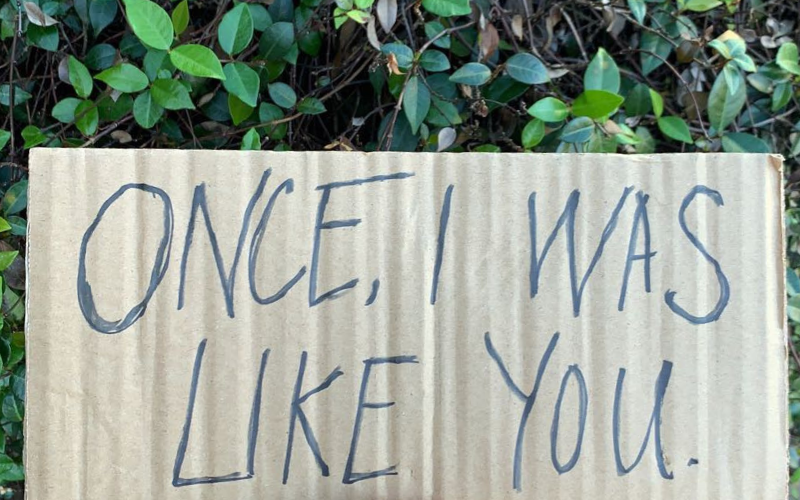
Stigmas of Homelessness: They’re Lazy
Look Beyond The Cover
“People will assume or believe why you’re homeless just by looking at you – because you’re carrying a bag or because of the clothes you’ve got on. They categorize you. They don’t know what you’ve been through without reading the book. They just look at the cover.” Tyrese, a guest at The Oasis, has experienced homelessness for nearly 3 years.
The stigma that people experiencing homelessness are lazy and don’t want to work is extremely harmful to families and individuals journeying on the path back to stability.
Researcher, Josh Leopold, of the Urban Institute, estimated that about 25% of the homeless population is employed. The Director of the National Coalition for the Homeless, Megan Hustings, found that 40% to 60% of the homeless population floats in and out of full-time and part-time work.
Barriers of Homelessness
There are many barriers homeless individuals must overcome to find and obtain stable work. Listed are a few of those barriers for why people experiencing homelessness are unable to “just get jobs” including:
- Having no permanent address
- Having no transportation
- Having no phone number
- Having a physical/mental illness
- Escaping domestic violence
- Having a criminal record
- Cost of Living
- Cleanliness
- No personal identification (birth certificate, driver’s license)
Tyrese shares his experience with his job search, “People say ‘get a job, get a job, you’re lazy’ but don’t realize everything was stolen from me. My ID, my social security number, my birth certificate… with COVID, it’s taken me months to try to get these things back. It’s hard to hear these assumptions, and it really gets to me sometimes. I want to go back to school and get my GED. I’d like to work in the kitchen, or in construction, but you have to crawl before you walk.”
According to a study done by Pew Trusts, which talks about the vicious cycle people experiencing homelessness become trapped in without an ID states, “To get an ID card, most states require multiple proofs of identity or permanent residences, such as utility bills, Social Security cards, or birth certificates. Some states require proof of homelessness, such as a letter from a social services agency. And most states charge a fee to get an identification card – not to mention fees of as much as $50 for a copy of a birth certificate. But even with waived fees, getting an ID can be an arduous process entailing multiple visits to a state office.”
Starting in 2022, The Sharing Center will begin a partnership with IDignity of Seminole County. This partnership will help bridge the gap and better serve families and individuals in need of personal identification. IDignity was created to help families and individuals in Central Florida through the complex steps of getting personal identification. Documents like birth certificates, Florida ID cards, and Social Security cards are essential for anyone to fully take part in society.
When asked what piece of advice Tyrese would give to someone who has a stigma against people experiencing homelessness, he stated, “Don’t judge someone, don’t just degrade them because they’re homeless. Open the book and read it, you’ll never know one day if that homeless person were to help you if the table turns. Treat others as you want to be treated.”
